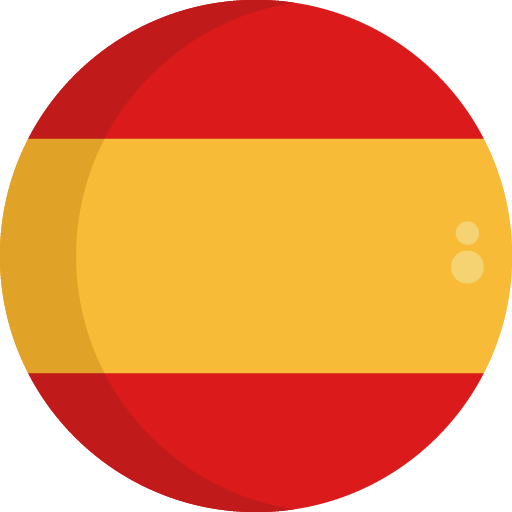Section 166
Witnesses of Jesus' death
Jerusalem, in the temple & Golgotha
| Matthew 27:51-56 | Mark 15:38-41 | Luke 23:45b, 47-49 |
| 51And behold, the veil of the temple was torn in two from top to bottom. The earth was shaken, and the rocks were split. 52The tombs were opened, and the bodies of many saints who had fallen asleep were raised. 53(They came out of the tombs, and after his resurrection they went into the holy city and appeared to many.) | 38Then the veil of the temple was torn in two from top to bottom. | 45band the veil of the temple was torn down the middle. |
| 54Now when the centurion and those who were keeping watch with him over Jesus saw the earthquake and the things that had happened, they became very frightened and said, “Truly this man was the Son of God.” | 39Now when the centurion who was standing in front of Jesus saw how he cried out and breathed his last breath, he said, “Truly this man was the Son of God.” | 47Now when the centurion saw what had happened, he glorified God and said, “Surely this man was righteous.” 48And when all the crowds who had gathered together for this spectacle saw what had happened, they returned home beating their breasts. |
| 55Many women who had followed Jesus from Galilee and provided for him were there looking on from a distance, | 40There were also some women looking on from a distance, among whom were Mary Magdalene, Mary the mother of James the younger and of Joses, and Salome. | 49But all those who knew Jesus stood at a distance watching these things, including the women who had followed him from Galilee. |
| 56among whom were Mary Magdalene, Mary the mother of James and Joses, and the mother of the sons of Zebedee. | 41These women had followed Jesus and provided for him when he was in Galilee. There were also many other women who had come up with him to Jerusalem. |
Notes
Temple Mount
For many people, their first view of the Temple Mount is from the Mount of Olives to the east. The most easily recognized area of Jerusalem; the Temple Mount is located within the walls on the eastern side of the Old City. The site of the Temple of Solomon, and of the later Temple built by Herod the Great (which is the temple Jesus visited), is now an enormous stone platform upon which stands the golden covered Dome of the Rock and the Al Aksa Mosque.
Here Jews come to pray at the Western Wall; here Muslims come to pray at the Dome of the Rock and the Al Aksa Mosque. Here Israeli soldiers and the Arab Temple Mount Police protect what may rightly be called the most revered spot on the face of the earth.
Solomon built the First Temple on the threshing floor that his father David had purchased from Arunah the Jebusite (2 Samuel 24:18 25). The site was hallowed as the place where God stayed the hand of Abraham as he was about to sacrifice his son Isaac on Mount Moriah (2 Chronicles 3:1), and where God stopped the plague against the Israelites (2 Samuel 24:15 18). In addition to the Temple and its associated buildings, Solomon built other magnificent structures between the City of David and the Temple Mount.
Church of the Holy Sepulcher
Although the Church of the Holy Sepulcher (“tomb”) is now within the city walls, it was outside the walls of Jesus’ day. Various places within the church contain remains from the first century, adding credibility to its identification as the location of Calvary and the empty tomb. Up the stairs you will see bedrock at a considerable height above the current floor; this is all that remains of the outcrop of rock which is the probable location of Calvary.
In A.D. 135 Hadrian built a temple to the goddess Aphrodite directly over this outcrop of rock. In A.D. 326, when the pagan temple was razed, the workmen looked for the tomb of Christ. When they believed they had found the correct one, they dug out the bedrock around the tomb so that it now resembles a small chapel.
Next to a chapel claimed by the Armenians and the Syrians you will have access to several “kokhim”, deep horizontal niches used in first century graves. This area can therefore at least be identified as a place where first century tombs were located outside the city walls—and thus a possibility for the correct location of Jesus’ tomb.
The Garden Tomb, located north of Damascus Gate, was suggested in the 19th century as an alternative site of Calvary and Jesus’ tomb. While the setting is very suggestive of what the garden would have looked like in the time of Jesus, excavations would seem to indicate that the tomb is too ancient to have been the one built by Joseph of Arimathea. The details of the chiseled walls and the bench type of arrangement suggest a date during the Old Testament. Were it not for the New Testament statement that Joseph’s tomb was new, this would have been a possibility.
Southern Steps of the Temple
The main public access to the Temple was from the southern steps. People entered and exited through a double and triple gate, together called the Huldah Gate. These gates had to handle enormous crowds during feast days; estimates as high as 500,000 people at a time. The triple arched gate was the entrance and the double arched gate served as the exit. Although the double and triple gates have been filled in, you can still see their outlines in the walls near the well-preserved steps of the monumental staircase.
The triple gate to the east led to a tunnel that brought worshippers up to the Temple and the columned porches. To leave the Temple they would exit the double gate on the west and go down a staircase 4 times larger than the entry staircase, since everyone was leaving at the same time. The steps below the wider staircase are well preserved and are one of the few places you can walk where you are sure Jesus walked. An interesting exception to the rule about entry and exit gates regarded mourners. According to the Talmud, they were to go in and out against the traffic in order that people would know of their loss. People would then extend their condolences by saying, “May He who dwells in this House give you comfort.”
In this area we will also see ritual baths from the time of Christ, important inscriptions from the Temple, the street that runs inside the Western Wall tunnels, and the ruins from the Roman destruction of Jerusalem.



















